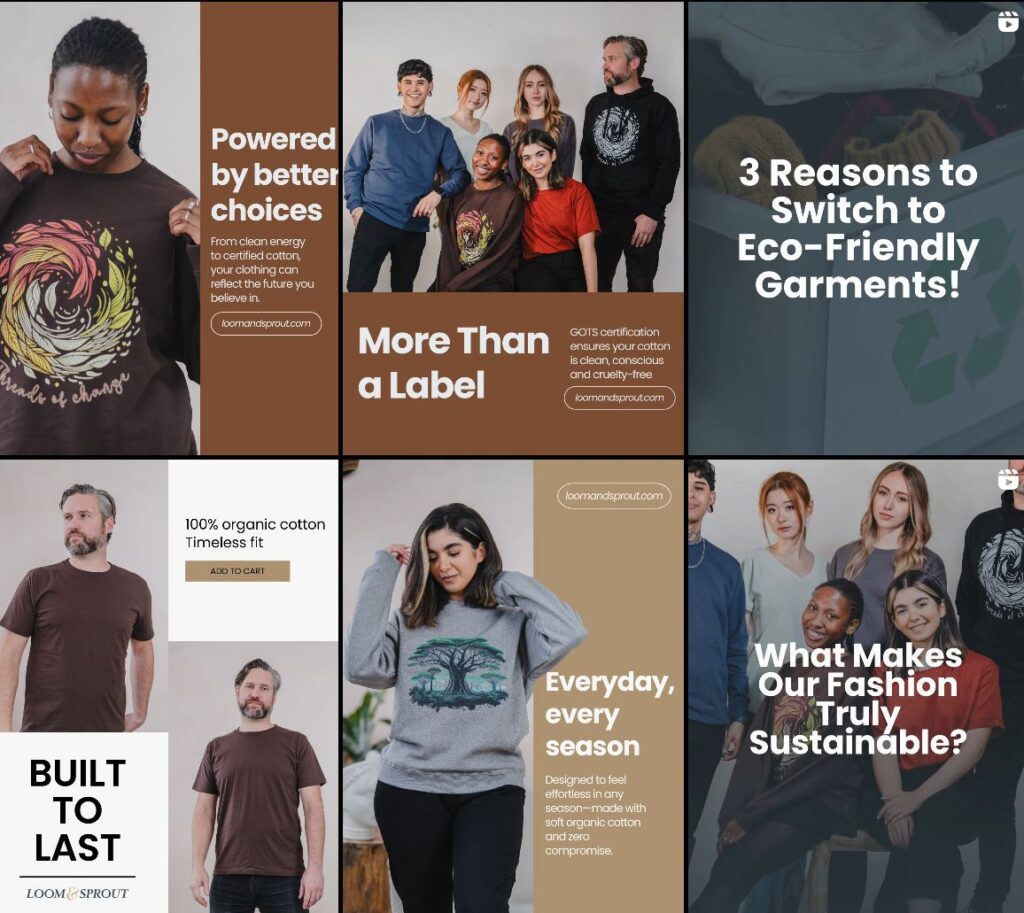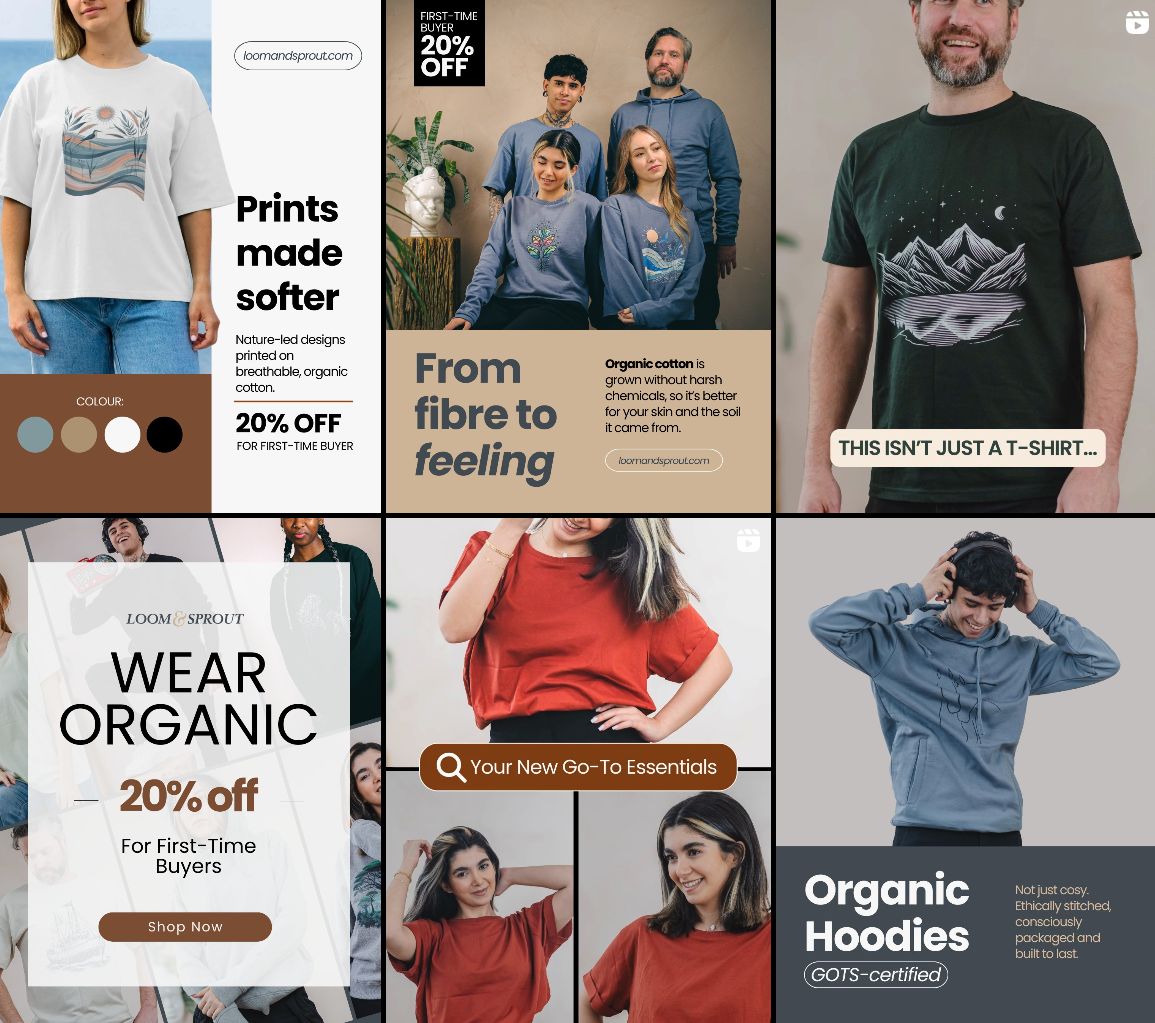In an era where the average person discards 70 pounds of clothing annually, sustainable t-shirt brands are challenging consumers to rethink their relationship with fashion. These pioneering companies are proving that clothing can be both environmentally responsible and exceptionally well-made, offering an alternative to the disposable fashion culture that has dominated the past two decades.
The Organic Revolution in T-Shirt Manufacturing
The foundation of any sustainable t-shirt lies in its raw materials, and organic fibres represent the gold standard in environmentally responsible textile production. Unlike conventional cotton, which requires intensive pesticide use and synthetic fertilisers, organic cotton is grown using natural farming methods that preserve soil health, protect water sources, and safeguard the wellbeing of agricultural workers.
Leading sustainable clothing brands have committed exclusively to organic fibres, recognising that true sustainability must begin at the source. GOTS (Global Organic Textile Standard) certification provides the most rigorous assurance that cotton meets strict environmental and social criteria throughout the supply chain.
The benefits of organic cotton extend beyond environmental considerations. The absence of chemical residues makes organic cotton naturally hypoallergenic and ideal for sensitive skin. The fibres also retain their natural breathability and softness, qualities that improve rather than diminish over time with proper care.
Transparency as a Competitive Advantage
Modern consumers increasingly demand to know the story behind their purchases, and sustainable t-shirt brands have responded by embracing radical transparency. This openness extends from the cotton fields where raw materials are grown to the factories where finished products are assembled.
Brands like Loom & Sprout exemplify this approach by providing detailed information about their UK-based design and printing processes, their use of GOTS-certified organic cotton, and their commitment to water-based printing inks. This level of transparency allows consumers to make informed decisions while holding brands accountable for their stated values.

The transparency movement has also encouraged direct relationships between brands and their suppliers. Rather than working through multiple intermediaries, many ethical fashion brands now maintain direct partnerships with cotton farmers and manufacturers. These relationships often include premium pricing for suppliers who meet high environmental and social standards, creating incentives for industry-wide improvements.
The Art and Science of Limited Production
The concept of artificial scarcity has long been used in luxury fashion, but sustainable brands employ limited production runs for entirely different reasons. By creating smaller batches, these companies can significantly reduce waste while offering customers more unique, thoughtfully designed products.
This approach allows for greater creativity and risk-taking in design. Without the pressure to appeal to the broadest possible market, sustainable brands can experiment with nature-inspired graphics, unique colour combinations, and artistic collaborations that reflect their environmental values.
Limited runs also enable superior quality control. When producing hundreds rather than thousands of units, manufacturers can pay closer attention to each garment, ensuring consistent stitching, proper fit, and flawless printing. This attention to detail is evident in the finished products, which often exceed customer expectations for construction quality.
Several UK brands have mastered this approach. Thought Clothing regularly releases small collections featuring nature-inspired prints and organic materials. People Tree combines fair trade principles with limited-edition designs that celebrate traditional craftsmanship. These brands prove that conscious consumption and beautiful design can coexist successfully.
Engineering for Durability: The Technical Side of Sustainable Fashion
The longevity that defines quality sustainable t-shirts results from careful attention to technical details that mass-market brands often overlook. Superior stitching techniques, including reinforced seams and quality thread, ensure that garments withstand regular wear and washing without deteriorating.
Fabric selection plays an equally important role. Premium organic cotton with longer fibres creates stronger, more durable textiles that maintain their shape and texture over time. The weaving density and finishing processes also contribute to longevity, with sustainable brands typically choosing methods that prioritise durability over short-term cost savings.
Print quality represents another crucial factor in garment longevity. Water-based inks, preferred by leading sustainable brands, bond with cotton fibres rather than sitting on top of the fabric like traditional plastisol inks. This results in prints that become softer with each wash while maintaining colour vibrancy for years.
The Economics of Conscious Consumption
Understanding the value proposition of sustainable t-shirts requires shifting from a price-focused to a value-focused mindset. While a premium eco-friendly t-shirt may cost three to four times more than a fast fashion alternative, its superior durability often makes it more economical over its lifetime.
Consider the true cost of ownership: a high-quality sustainable t-shirt worn twice monthly for five years provides 120 wears, while a cheaper alternative might last only 20-30 wears before showing significant wear. The cost per wear often favours the sustainable option, not accounting for the environmental and social benefits.
Beyond the Product: Holistic Sustainability
The most impressive sustainable t-shirt brands extend their environmental commitment beyond the product itself. Many use plastic-free packaging, carbon-neutral shipping, and take-back programmes for worn-out garments. Some partner with environmental organisations or allocate profits to conservation efforts.
These holistic approaches demonstrate that sustainable fashion can be a force for positive change rather than simply a less harmful alternative to conventional fashion. Brands like Kotn work directly with cotton farming communities to improve livelihoods, while Organic Basics focuses on creating the most environmentally friendly basics possible.
The sustainable t-shirt market continues expanding as more consumers recognise the benefits of conscious consumption. By choosing brands committed to organic fibres, ethical sourcing, transparent manufacturing, and durable construction, consumers can build wardrobes that reflect their values while enjoying superior quality and longevity. This shift represents more than a fashion trend – it’s a fundamental reimagining of how we produce, purchase, and value clothing.
** AI Usage Disclosure: This article was researched and fact-checked with the assistance of AI tools to ensure content accuracy and relevance. The main article was constructed and written by the author, who also personally proofread and finalized the content.







